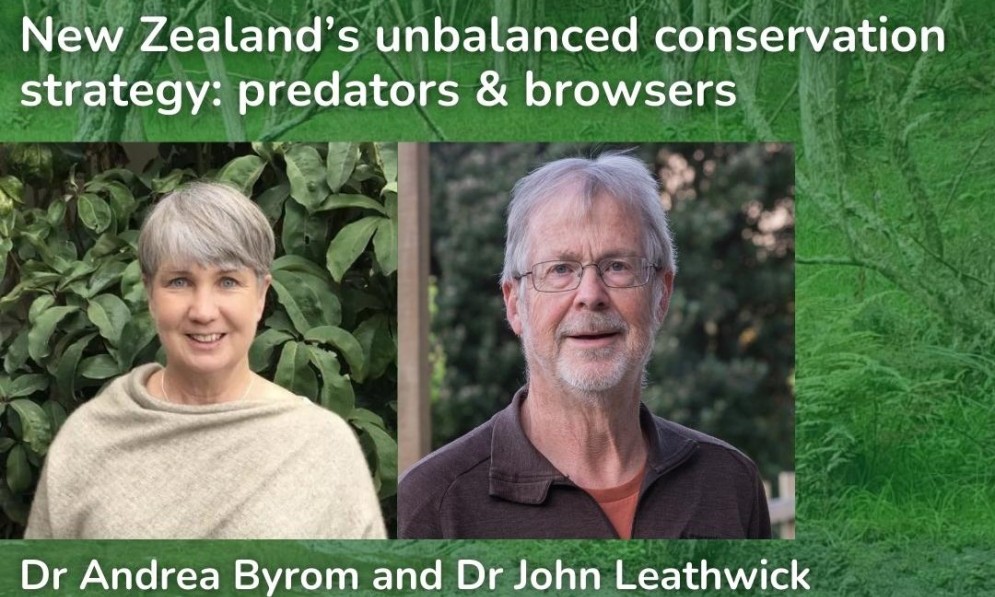In this webinar, Dr Andrea Byrom and Dr John Leathwick will discuss their recently published research that drew attention to the lack of national effort to manage deer and other hoofed browsers while the focus has been on Predator Free 2050.
Predators like rats and possums are a major focus of conservation efforts in New Zealand. Yet, wild ungulates (deer, goats etc) are largely uncontrolled, despite increasing populations and evidence for their negative impacts on a wide range of indigenous species and ecosystems. This imbalance in management effort is much less likely to deliver outcomes consistent with Aotearoa’s biodiversity goals than a systematic approach that addresses a full range of biodiversity threats.
Join us on Thursday 26 October at 7:30pm on Zoom to hear Andrea and John discuss shifts in conservation management emphasis over the last century, the recent rise to prominence of predator-free-focused conservation management and the likelihood that it will deliver outcomes consistent with national biodiversity goals.
Register for the webinar here.
Speakers:
Dr Andrea Byrom is trained as a scientist in wildlife population ecology and held various research leadership roles at Manaaki Whenua Landcare Research for over 20 years, including co-director of New Zealand’s Biological Heritage National Science Challenge. Andrea is currently a Board member of the Environmental Protection Authority and a Trustee for the Predator-Free 2050 Trust. She also holds an advisory role as a board member for New Zealand’s Science Media Centre.
Dr John Leathwick is a retired conservation scientist. He has previously worked as the Principal Scientific Advisor for the Department of Conservation, a principal scientist at NIWA, and a scientist at Maanaki Whenua.

